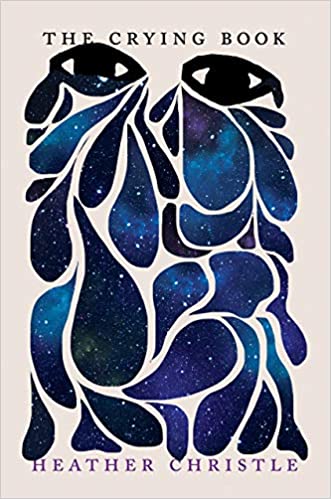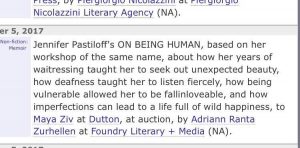I spent the spring of 2020 sewing masks when I was supposed to be teaching teenagers to resist sexual coercion.
Feeling immobile and useless, I would have done anything that seemed like helping. I learned to make masks from an online video. In it, the smiling CFO of a hospital chain in the Midwest shows us how to stitch two six-by-nine pieces of cotton together and make pleats so the mask follows the shape of a face. There’s a man in the video whose only job, it seems, is to ask what she’s doing at each step of the process and express his approval. The CFO sounds happier than a person who works in a hospital should be. I imagine people on ventilators just down the hall. Her perfect pleats and bright patterned fabric are ridiculous. And comforting.
***
I teach self-defense. I missed the groups of teenage girls who came in expecting to fight off a creepy stranger with kicks and punches out of an action movie. Instead we’d teach them to resist coercion and assault from a guy they know and like. My co-instructor, a man dressed in 50 pounds of protective gear, would portray that guy—the one at the party who invited her to go somewhere quiet. To listen to music, he said. All night he made her feel special, getting her drinks, ignoring other girls’ flirtations.
But when they get to the upstairs bedroom, all he wants is sex. He’s charming the first time she refuses. Telling her she’s beautiful, and it’s not a big deal. When she refuses again, he yells. He could have any girl at the party, and why did she make him waste his time? We teach her to get up to leave. He blocks the door and grabs her wrist. We teach her to break the grip; to yell, “Let me leave!”; to strike the head or groin.
My co-instructor’s protective gear makes it possible for students to practice defending themselves by striking him with as much power as their bodies have. He is trained to portray that guy, every coercive word and gesture, every abusive rant. That way she our students feel scared or angry or immobile in all the ways they would if this party were real, and they learn to access their power in the midst of all those feelings.
***
Instead of telling hard truths I spent most of 2020 piercing my fingers with straight pins, taking seventeen tries to thread a needle. Every part of the process is tedious. Lining up the fabric, stitching around the edges. Still, making something out of thread and fabric reminds me of home. My grandmother sewed. My mother made needlepoint pillows. Every stitch was as tight as the clench of her jaw when my father made an inappropriate joke.
I haven’t sewn since I was in high school and on costume crew for the fall musical. I joined because I didn’t get cast, and that’s what all my friends who didn’t get cast were doing. We met in the basement below the auditorium. We sat in a tight circle and talked about how not to get caught sneaking out of your bedroom, or the tragedy of having small breasts. About how pretty I would be if I let one of them do my hair and makeup. But mostly the girls on costume crew talked about sex. About what they would and wouldn’t let their boyfriends do. About giving hand jobs to theater guys who took forever to get excited, guys I now realize were probably gay. The intimacy almost made up for not being upstairs with the kids who did get cast.
One day, in an isolated corner of the basement, a girl who was blonde and pretty told me and she’d been raped by a family friend. She didn’t tell her parents. They were already disappointed in her. There was no adult at school that any of us thought we could tell. All the adults ever wanted to talk to us about was drugs. And they loved to talk to us about drugs. They showed us film strips about teenagers who thought they were just experimenting but wound up ruining their lives. They held all-school assemblies where recovering addicts spoke to us, as if living embodiments of ruined lives would hit us harder than the films. There was a counselor whose job it was to pull kids out of class and tell them not to be influenced by their peer groups. Though the football team was using as many drugs as anyone else, she only came for the kids who wore all black and listened to punk bands.
It wasn’t true that they never talked to us about violence, but violence was for poor people—and the poor people in our imaginations were almost always Black. We read The Color Purple, and no white teacher helped us untangle Blackness and poverty from rape. From their silences we learned that violations like rape lived in the parts of the city our parents wouldn’t let us visit.
***
Some of the scenarios we teach begin with girls lying on the gym floor, as if they’re sleeping. My co-instructor pins their arms. With some, he plays an ex-boyfriend who insists she owes him sex. With others it’s an acquaintance, drunk, not stopping when she tells him she wants to sleep. I kneel at each girl’s head, talking over the verbal abuse. I remind each girl to breathe, to focus on finding a way out. In order for this assault to proceed, he has to move bed sheets or clothes. In each of those moments, she could get a hand or foot free, and use it to strike a vulnerable part of his body.
They can do it in a classroom. Pretending to sleep on a wrestling mat, other girls cheering for them the minute they start fighting back. But using your body to stop another person from harming you is a complicated calculation, especially for a teenage girl. When the difference between intimacy and violence is not as stark as it’s supposed to be, most people are left with painful choices. “If it was a boyfriend or a family member, I would feel bad about hurting them,” one girl wrote in response to an anonymous survey of students who had taken our class. “The idea of hurting someone you love is difficult. It’s kind of sad if you think about it because someone I love is hurting me,” wrote another. In that same survey, one young woman responded that she slapped her now-ex-boyfriend in the groin after he didn’t stop when she said no.
***
In high school I was the confidant of girls who were having sex, living vicariously through the blow jobs they gave or hated. I loved getting to be part of someone’s erotic life without the pressure of having one of my own. It was disappointing not to be desired, but also a relief. I didn’t have to balance my own wants with those of a boy who’d been taught all his life to be entitled. I didn’t have to listen for the sound of a garage door, and then rush to throw on enough clothes to fool a parent into thinking we’d been watching TV.
I worked hard to avoid the reality of my body. I wore mismatched socks and loud patterned clothes that were always a few sizes too big. One day I wore a Kleenex box on my head. Another day, a toy sailboat. The fact that I’d declared war on my body went unnoticed, because my rage was expressed with mismatched floral patterns. My clothes were my protest. Or they were my strategy for how to feel special without getting the kind of attention that could lead to sex.
My mother, who followed most rules, always told me she was proud of me when I left the house. Some mornings, at the kitchen table, I saw tears she could not completely stifle, as she told me how glad she was that I had the courage to be myself. I didn’t know who that self was any better than any other teenager, but because I was voluntarily different, most adults assumed I did.
Every bright green tutu I wore took me further away from having to become a sexual being. When I did fall in love, it was always the same drama. The boy never loved me back. He was distant and unkind, but only because he was so tortured. Sometimes I was his confidant, the only person he could trust with his suburban teenage demons. Eventually he’d start dating another girl, someone thinner than me, with shinier hair and better makeup. He’d ignore me until they had a fight. Then, he’d call me at a too-late hour to tell me that I was the only one who understood him.
***
There were too many things we called sex when I was a teenager. One of my friends cried hard the Monday after her first time. Her hip-length hair was oily, her whole body smelled like bad breath. She wore a sweater a couple sizes too big, though it was almost summer. She pulled me into a stairwell. Her whole body shook as she told me that her boyfriend wanted it but she didn’t. He was thick and tall, and he heaved and sweated on top of her as she lay pinned to a couch. Her mother had found out, and told her she was selfish. A pregnant teenager would ruin her father’s career, and how could she be so careless?
I couldn’t believe how white and weak my friend looked. She, the most outspoken girl I knew. She played the lead in the spring play and didn’t care that she intimidated her co-star. She was my protector too. In the hallways, when kids mocked me for my outfits, she yelled at them to shut up.
***
I had only one boyfriend in high school, and our relationship lasted three weeks. He called every night and asked me questions about myself. At a cast party in someone’s parents’ basement, he tongue kissed me. I opened and closed my mouth, trying to follow the rhythm of his lips. I felt like I had no choice but to kiss, though nobody forced me. And maybe he could tell that everything but the shell of my body was gone. And maybe that’s why he didn’t try to touch me anywhere else.
***
I have a special kind of anger toward men who give women safety advice that has no basis in evidence. I have a special kind of disappointment, too, in women who fill up the seats at lectures given by these men. Who nod solemnly as the man, who is usually a police officer, tells a packed classroom that if we get attacked it’s because we weren’t being smart.
Here are some examples of the advice these men give: If you live alone, put a pair of men’s boots outside your back door. Do not change clothes in front of an open window. Don’t wear a pony tail; it’s easy for an attacker to grab. If you live in an apartment building, don’t do laundry alone. (That one comes from the NRA’s Refuse to Be a Victim Course, which also advises us not to use a public bathroom alone.) If a creepy man is walking behind you, get on your phone. Pretend you are calling your boyfriend (say a man’s name loud enough for the creepy man behind you to hear). Pretend you live in one of the apartments you are walking past and that you can see your boyfriend through the window. Say loudly into your fake phone call that you’ll be home soon. Pull the fire alarm. (Every rapist is afraid of firefighters and apparently will wait until they show up.) Don’t go out alone after dark. (That one came from the police in stereotypically liberal Cambridge, Massachusetts. A woman had just defended herself against a man who grabbed her from behind, a detail not mentioned in the press release the police issued. Also, it was winter in the northeast so five o’clock is after dark.)
Too often when men tell women how to be safe, it’s about limiting our lives and depending on them. The good guys will keep the bad ones away.
***
Here’s what the research actually shows. Criminologist Sarah Ullman analyzed the National Crime Victimization Survey as well as several other studies. She separated the ways women resist rape into four categories: forceful physical resistance (kicking, punching, hitting), non-forceful physical resistance (pulling away, fleeing), forceful verbal resistance (yelling), and non-forceful verbal resistance (crying, pleading, reasoning). Of these, the strategy least likely to stop a sexual assault is non-forceful verbal resistance. Everything you learn when you’re taught to be a woman—to plead, concede, do nothing and pray he won’t hurt you worse—is the exact opposite of what works.
The self-defense programs that have been shown by research to decrease sexual violence have some things in common. They are explicitly feminist and invite young women to challenge gender socialization. They give women the chance to practice recognizing and resisting coercion, and they have young women define what they want out of sex.
The reality that rape can be stopped by ordinary strength is not common knowledge. Maybe because women resisting rape unsettles so many. What would men who inhabit traditional ideas of gender do if the women they love didn’t need their protection? How would feminists ensure that the responsibility for rape stays with the perpetrators and the culture that creates them? Being capable of stopping rape doesn’t make you responsible for it, but that nuance is too often lost.
***
A girl in my English class wrote a short story about rape. The teacher responded by talking about grammar and sentence structure. Reading it made me feel hollow and alive at the same time. I wanted to crawl inside the typed pages and live there until I understood something about my own life.
I spent my adolescence in a state of numbness, walking into walls and rows of lockers. I couldn’t concentrate. I drew flowers on my math homework and looked at the ceiling instead of the teacher. So they sent me to reading specialists and speech pathologists but never asked if anything was wrong at home. And what would I have said if someone did ask? My experience, like smoke, was not solid or substantial enough that I could touch it. And, like smoke, it was suffocating me.
Sometimes when I teach, I look around the room and try to guess which girl is me. The one whose father’s violations are so subtle that she’s not sure they count. The one who feels desired in a way that shreds her, who lives on the receiving end of intimate attention that feels thick and heavy, like hairy hands covering her mouth, making her gag. Does she—like I do—gag at almost anything? Does she struggle to trust intimacy or attention?
Trauma fragments memory. For some, it overwhelms the nervous system to the point where the cerebral cortex—the part of the brain that forms linear memories—shuts down. When this happens, people are left with shreds of images, nothing that can be narrated as a series of events. Instead, the abuse lives in the parts of the brain that don’t have language. Implicit memories, they’re called. Physical sensations and strong emotions that hit people at unpredictable times. Offering clues about what happened, but usually not enough.
I have taught hundreds of teenagers, and I still can’t imagine what it would have been like to be seventeen and learning I could protect myself from a person I love. I know I wouldn’t have picked up the physical skills as quickly as most of my students do. I might not have been strong enough to hit or kick as hard as they do. I probably couldn’t have projected confidence by standing with my head up and my shoulders back. Or maybe I could have. And maybe if I’d been taught I could interrupt rape with my body, I wouldn’t have spent so many years in a state of numbness.
I interrupt hundreds of rapes a year. Rapes that are simulated and choreographed enough to be safe but also real enough that the lower parts of my brain experience a true threat. Every day I inhabit this newly constituted body. Fierce, physical resistance has become as instinctive as breathing. I can’t remember what it felt like when I didn’t think I was powerful.
***
In high school, most of the girls who told me they’d been raped had reputations for being sluts. I’ve gone to enough conferences where experts in the room talk about “risky behaviors” and ways people put themselves in harm’s way because sexual abuse broke them and they’re not yet fixed. I have no doubt that trauma breaks people, but it troubles me how quick we are to understand sex as a form of self-harm. I can’t help wondering if there’s another reason the girls I knew in high school chose to have as much sex as it takes to be called a slut. If they did it again and again until they made it their own. If that was the way they made their bodies to feel powerful.
Maybe that’s why I still think about the girls I used to know. Because there is something still unfinished about my own relationship to sex. I want to be the kind of person who believes that sex and pleasure are as important as power and resistance. I want to stop pretending the erotic is frivolous, easily cast aside to make room for the next social justice struggle. I want to be as free, ecstatic, sexy, and bold as a teenage girl who has given up on trying to win other people’s approval.
Meg Stone is the Executive Director of IMPACT Boston, a nationally recognized abuse prevention program. Her writing has been published in HuffPost Personal, Newsweek, Boston Globe, Dame, and Ms.
***
Have you pre-ordered Thrust?

“Blistering and visionary . . . This is the author’s best yet.” —Publishers Weekly (starred review)
***
















